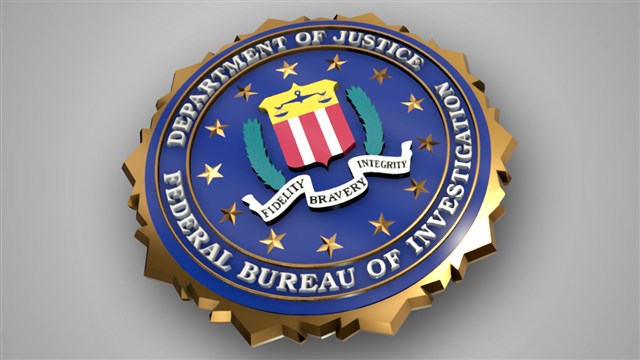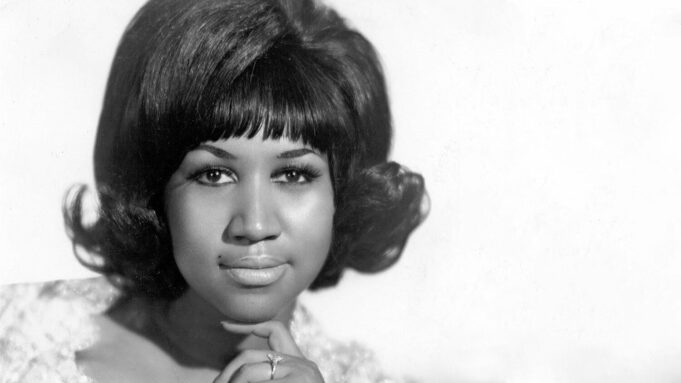Aretha Franklin is known for many things. She was called the Queen of Soul, twice placed ninth in Rolling Stone’s “100 Greatest Artists of All Time” and her music sold more than 75 million records worldwide. She had 73 songs on Billboards Top 100. Ms. Franklin was awarded the National Medal of Arts and the Presidential Medal of Freedom. Her career spanned more than 50 years from her first recording in 1966 to her death in 2018. For 40 of those years, the Federal Bureau of Investigation (FBI) tracked her.
“It really should not be surprising to us that Aretha Franklin and many other Black folks who were popular in the world of entertainment and were also active in the world of civil rights would be surveilled by the FBI,” attorney Nana Gyamfi told The Final Call. “The FBI was really at its core, set up to prevent Black people from being free. Anyone who was, is interested in the freedom of Black people, be they famous or not famous, are subject to surveillance.”
Ms. Franklin’s FBI file was requested in 2018 through the Freedom of Information Act by Jenn Dize founder of Courage News. She received 270 pages that described Ms. Franklin, the daughter of acclaimed Pastor Rev. C. L. Franklin, with phrases like “Black extremists,” “pro-communist,” “hate America,” “radical,” “racial violence,” and “militant Black power.”
Ms. Dize tweeted a picture of a 1967 document entitled “Communist Infiltration of Southern Christian Leadership Conference (SCLC) Internal Security.” The document explains how a confidential source informed the FBI that Dr. Martin Luther King Jr.’s Southern Christian Leadership Conference (SCLC) would be celebrating their 10th anniversary in Atlanta. It also noted that Sidney Poitier would be the guest speaker and Aretha Franklin would be at the banquet.
A 1971 document, “subject: Black Panther Party, Los Angeles” explains the depth of the FBI’s intrusion into Aretha Franklin’s life. The FBI has copies of her and Roberta Flack’s contract details with Atlantic Records. The FBI spared no aspect of her life, all carefully documented with information supplied by confidential informants.

WPFW host of Yardbird Suites and musicologist Jamil Muhammad was not surprised to hear that music’s beloved Aretha Franklin was surveilled by the FBI. “This morning on my show, I reviewed a quote by Sweet Honey and the Rock Founder, Dr. Bernice Johnson Reagan. She talked about how we defend ourselves with our culture because our culture is something uniquely ours. We have no army. We have no land. We have no treasury. We cannot impose our will on other people, but we can offer our culture so that we are understood in the community of nations,” he told The Final Call.
“Aretha Franklin was and continues to be a cultural treasure of Black people uniquely, and Aretha Franklin was aware of her value in her own community,” Mr. Muhammad continued. “She acted wherever she could to support Black institutions, Black causes, Black people at all. She joins the other people fighting for our liberation. What righteous person is not watched, followed and shadowed by the wicked? The Most Honorable Elijah Muhammad said that they are universal snoopers,” he said, referring to the Eternal Leader of the Nation of Islam.
Mr. Muhammad questioned the intent of the FBI. He wondered why they would track Aretha Franklin: a singer, a musician, a mother and a wife. “You have a country filled with spies, espionage agents, and every other kind of criminal. They don’t want to follow the criminals as closely. Were they concerned Aretha Franklin may spark something in us to inspire us to unify,” he asked.
The FBI has a long history of tracking Black activists through the COINTELPRO, Counterintelligence Program, which ran from 1956 to 1971 under the leadership of FBI Director J. Edgar Hoover. Its goal was to discredit and neutralize organizations considered subversive to U.S. political stability. In addition to individuals being surveilled, the FBI also watched organizations like the Communist Party, the Black Panther Party, and the Nation of Islam.
But Black artists and entertainers were not immune to being targets of the FBI. Authors James Baldwin and Richard Wright were monitored by the agency for so-called “political activity.” Actor, artist and activist Paul Robeson was also targeted.
According to a recent article by Candace McDuffie at The Root, “A 1968 document showed that the FBI referred to Martin Luther King Jr.’s funeral as a ‘racial situation.’”
Ms. McDuffie’s article noted that the FBI document also stated: “Sammy Davis Jr., Aretha Franklin … of this group, some have supported militant Black power concept … [performance at MLK memorial by these prominent entertainers] would provide emotional spark which could ignite racial disturbance in this area.”
“Ultimately, the FBI attempted and failed to connect Franklin to “radical movements.” Other artists who famously have FBI files include Marvin Gaye, Jimi Hendrix, Whitney Houston and The Notorious B.I.G.,” wrote Ms. McDuffie.
According to 7news.com.au, an Australian news agency, the FBI also had files on rappers Tupac Shakur, and Russell Tyrone Jones a.k.a. “ODB” from the Wu Tang Clan.
The FBI started following Aretha Franklin in 1967, the same year her hit song “Respect” was released. “Hearing people singing ‘R-E-S-P-E-C-T, find out what it means to me’, was important to Black people because as a people, we had never been respected per se,” Mr. Muhammad said. “When she electrified the record market with that kind of beautiful song, she set off something. Her call for respect was heard by Black people as a rallying cry for Black power, Black empowerment, Black advancement, Black achievement, Black excellence. If you’re going to keep people inside the chains of mental, economic, spiritual, social, and political slavery, you can’t have them thinking that they have power.”
Aretha Franklin was laser-focused on her mission. She associated with whomever she pleased. In 1970, after Angela Davis was arrested, Ms. Franklin offered to post her $250,000 bail. She told Jet Magazine, “My daddy says I don’t know what I’m doing. Well, I respect him, of course, but I’m going to stick by my beliefs. Angela Davis must go free. Black people will be free. I’ve been locked up (for disturbing the peace in Detroit) and I know you got to disturb the peace when you can’t get no peace.”
When the time came for bail to be posted for Angela Davis, Ms. Franklin was in the Caribbean and at that time money didn’t move as easily across borders. Subsequently, a White farmer from Central California used his farm. Ms. Davis told NPR (National Public Radio) the significance of that gesture.
“That was such a moving moment. It was a moment in which the campaign for my freedom achieved a really populist status among people in this country, and probably throughout the world, as well,” she said. “I will be forever grateful to Aretha, because I think she played such an integral role in—of the success of the campaign.”
In 1972, Ms. Franklin came to the aid of the Muslims in New York City after they were attacked by the police. The Honorable Minister Farrakhan was over the mosque. In a statement from the Minister after the passing of Ms. Franklin that was published in The Final Call, he recounted that day.
“Within a few hours, Aretha Franklin came to the mosque, to my office, and said that she saw the news and came as quickly as she could to stand with us and offer us her support. She asked me if Rev. Jesse Jackson had been there to show support. I said, not yet. She said, he’ll be here within 48 hours,” said the Minister’s statement.
“Rev. Jackson came and stood with the Muslims. We marveled at her show of courage, fearlessness, which was rooted in her profound love for her people and her desire for justice for us. Her activism, her selflessness caused her to stand with Dr. Martin Luther King and the civil rights movement as she joined the struggle of our people for liberty, equity and justice.”
That commitment to Black people was evident in Ms. Franklin’s music and activism. Many were surprised to learn she was a target of the FBI. Davey D, nationally recognized journalist, adjunct professor, Hip Hop historian, media and community activist told The Final Call, “She was very popular. She was on the cover of magazines around the issue of soul music.”
“Soul music was something that at a certain point was something that needed to be surveilled because there was alignment with the civil rights movement,” he said. “Somebody like her who did an anthem, which was ‘Respect,’ who had close ties to Dr. King, we should have expected that she would be surveilled.”
—Nisa Islam Muhammad, Staff Writer













